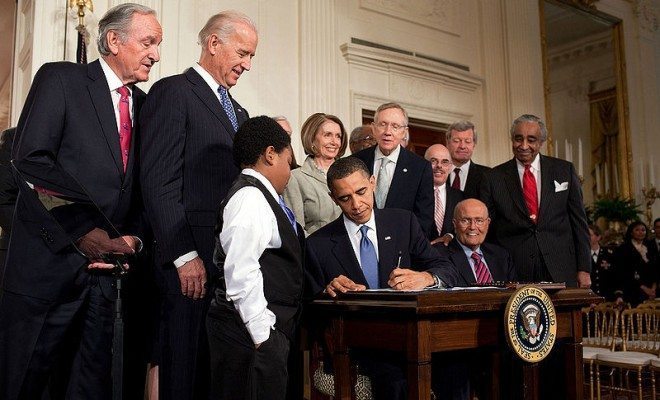
Blogs
Is it Legal for the President, and not Congress, to Implement ACA Delays?
The Obama Administration once again announced an extension of an Affordable Care Act deadline this week. For anyone who’s counting, we’re up to at least 11. This time it’s late signups for people who have technical problems that prohibit them from signing up by the March 31 deadline. If that’s you, you can now apply for an extension to mid-April by checking a box on the application. The Administration is trusting that you’ll abide by the honor system and will really only ask for an extension if you need it.
The President has issued many delays since the healthcare law was implemented. Here’s a brief recap:
- Starting in November 2012, the Department of Health and Human Services delayed for a month the decision to set up a federal exchange.
- In July 2013, the employer mandate was delayed. The statute originally imposed fines on businesses with more than 50 employees that do not offer health insurance. Now, no fines will be enforced in 2014.
- November 2013 saw two different delays — one for open individual enrollment in 2015, and the other being open enrollment for small businesses. A month later, the deadline to apply on the individual exchange was delayed twice in a row — first on November 12, and then November 24.
- High-risk pools (groups of people with pre-existing conditions who were uninsured) were slated to end January 1, 2014, but they were extended to March. As soon as we reached that deadline, it was extended yet again.
- The deadline for employers with 50 to 100 employees to offer healthcare was again delayed in February 2014 — they are now allowed to wait until 2016 to offer health insurance.
There is predictably criticism from Republicans ranging from the need to fix key parts of the law to repealing it outright. One suggestion is to repeal the tax on medical devices, a main revenue source for the Affordable Care Act, while others have called for an investigation looking into the constitutionality of the delays. Michael McConnell, quoted in the Washington Post, has said that the continuing deadline delays are blatantly illegal. “Statute does provide broad discretion, but unless there’s some explicit statutory authorization they don’t have the right not to do it … That’s the difference. Suspending and dispensing with statutes are equally impermissible.”
When it comes to allowing the executive branch to implement delays in the law, the main concern is over Congress’ role. Congress, the main federal legislative body, is supposed to take up these delays. By allowing the President to give out executive orders delaying legal statues, legislative jurisdiction becomes confused. Who, in fact, has the right to make these delays?
—
Dennis Futoryan (@dfutoryan) is an undergrad with an eye on a bright future in the federal government. Living in New York, he seeks to understand how to solve the problematic issues plaguing Gothamites, as well as educating the youngest generations on the most important issues of the day.
Featured image courtesy of [Wikimedia]








Comments